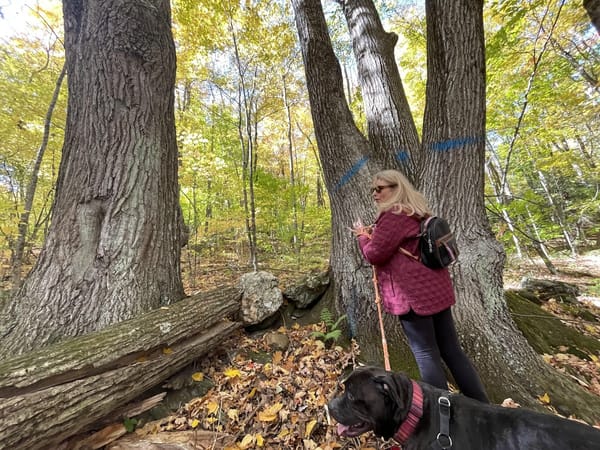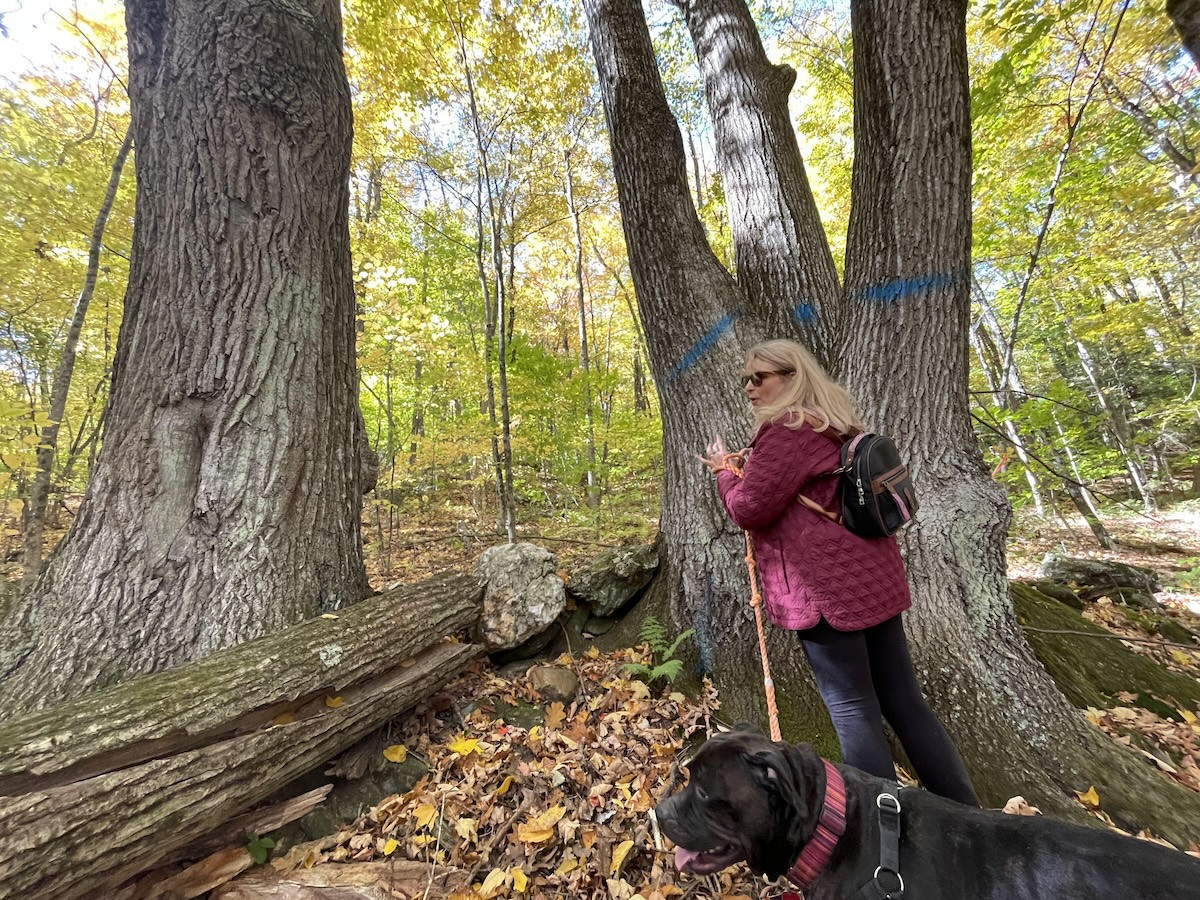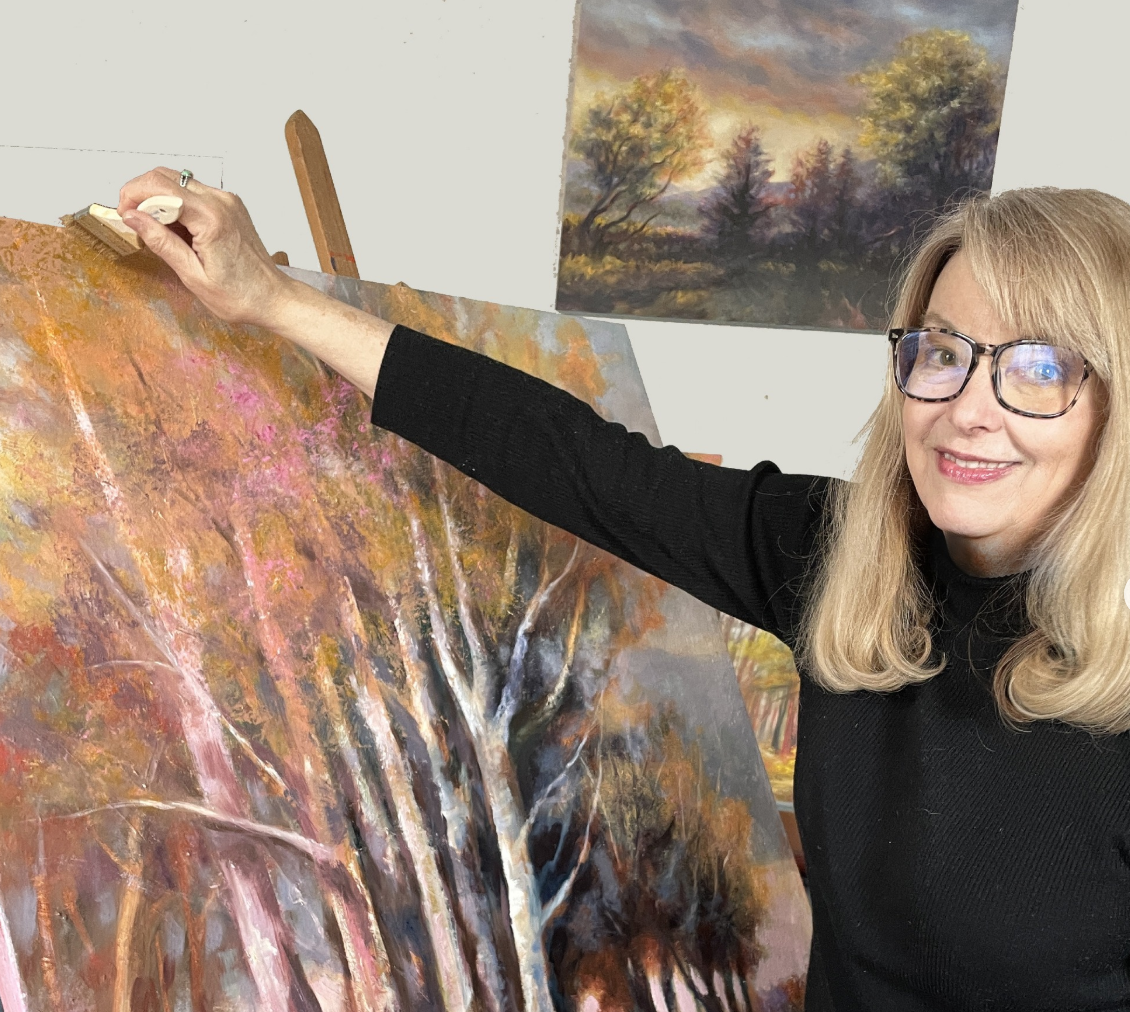The Rural We: Lori Bradley
Bradley's opposition to logging in North Adams snowballed into a movement that halted the plan.

Bradley's opposition to logging in North Adams snowballed into a movement that halted the plan.

In the summer of 2024, When Lori Bradley found out about a North Adams/Mass Audubon land management plan that would log around 70 acres next to the Notch Road Reservoir (known locally as The Notch) and use herbicides near the city’s watershed, she started a Facebook group in opposition to the plan.
The targeted site, off Notch Road on the wooded west end of North Adams leading to Mount Greylock, is the home of the Bellows Pipe Trail. Neighbors were concerned about the potential removal of old-growth trees and the impact logging could have on the water supply, so activity on the Facebook group soon picked up steam.
Opposition to the plan swelled, with 2,000 petition signatures, multiple City Hall protests, packed council meetings, and offers of help from other activists in the region like Nobel laureate Bill Moomaw and soil scientist Glen Ayers. Due to the coordinated community pressure, the city dropped the plan in December. Bradley, a painter and digital design professor at Bridgewater State College who lives in North Adams, talks about how this movement came together and how other communities can look to its success as a model for organizing during similar events.
“At the end of July 2024 there was an article about ‘climate-smart logging’ at the Notch. They called it a ‘thinning,’ which is basically taking out the canopy all along the Bellows Pipe Trail, almost a half mile back, and then up the slope toward the graveyard that's up there.When we looked at their plans, they were only cutting certain trees, but they had to cut dozens of logging roads in to get there. That whole hill is full of underground streams and rocky sheets. With that kind of traffic, the whole thing (could) slide down toward the reservoir. They kept complaining about the dying spruce plantation, which was planted in the 1930s by the Civilian Conservation Corps to protect against erosion. And they wanted, at the beginning, to use herbicides. That was the thing that got me riled. So a few of us went to the Conservation Commission meeting and they were against it as well. A couple of the members were pretty alarmed about these potential herbicides.
I found Chris Matera at MAForestWatch. He connected me with Janet Sinclair in Greenfield, who works with him and a lot of activists in that area. She asked me if there's any way she could help. That started the whole battle. The community came together, and that was the important thing.
We did a forest walk, and about 20 people came out. They had already marked a lot of trees that were old growth—oaks, healthy trees. The city and Mass Audubon said they were just logging for the unhealthy trees, but it was mostly healthy trees that were marked. Then it just started accelerating. We started an email list and started trying to get more members, posting constantly on Facebook. We were getting a lot of advice from people that had been through this before along the Mohawk Trail in the Pioneer Valley. It was nice to see all those people coming together and wanting to help.
We joined another group called Trees as a Public Good, and they put out an alert about it for people to write letters to organizations or state representatives. That went to the mayor, and it went to our state representatives and State Senator. They did another alert targeting Mass Audubon, and those resulted in probably 4,000 letters going out. We had the backing of some good policy people and experts. So that was really helpful.
We didn’t know where the mayor stood because she was completely noncommunicative. The only communication we had with her was through either City Council meetings or Conservation Commission meetings.
When we found out they canceled the project it was a total celebration. We were all calling and emailing back and forth; it was the best day.
We’ve been walking the property now, to document the trees that are up there, in case this comes up again. We’re getting involved in other state efforts, trying to help other people that are going through this. I go to all the Trees as a Public Good meetings. We're trying to stop logging on public lands, because they're our best offset for climate change right now. We're reorganizing as a group, and we’re trying to find a way to get permanent protection for the Notch.”

